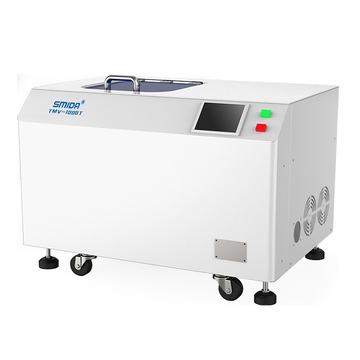Centrifugal mixers have become a crucial tool in the chemical and pharmaceutical industries due to their ability to efficiently mix, disperse, and react various substances. One of the advantages of using centrifugal mixers is the wide range of models available, each designed to meet specific needs and requirements.
Vertical Mixers
One popular type of centrifugal mixer is the vertical mixer, which features a rotating drum or cone-shaped vessel that allows for high-speed mixing of materials. These mixers are ideal for blending powders, granules, and other solid materials with liquids, as the design of the vessel ensures thorough dispersion of particles. Vertical mixers also come in different sizes and configurations, making them suitable for both small-scale and large-scale production.
Horizontal Mixers
Another common type of centrifugal mixer is the horizontal mixer, which features a horizontal chamber where materials are mixed by rotating blades or paddles. Horizontal mixers are often used for mixing viscous materials, pastes, and slurries, as the design allows for efficient agitation and blending. These mixers also come with different blade configurations, allowing for customization based on the specific mixing requirements.
Specialized Mixer Models
In addition to vertical and horizontal mixers, there are also specialized centrifugal mixer models designed for specific applications. For example, some mixers are equipped with heating or cooling capabilities, allowing for temperature-sensitive materials to be mixed without compromising their properties. Other mixers are designed for high-pressure applications, ensuring that materials are mixed under optimal conditions. These specialized models cater to the diverse needs of the chemical and pharmaceutical industries, providing solutions for a wide range of mixing challenges.
Features and Options
Furthermore, centrifugal mixers come with various features and options that enhance their functionality and usability. Some mixers are equipped with programmable controls that allow for precise adjustment of mixing parameters, such as speed, time, and temperature. This level of control ensures consistent and repeatable mixing results, regardless of the material being processed. Other mixers are designed with easy-to-clean features, making them suitable for applications that require frequent batch changes or material swaps.
Customization Options
Moreover, centrifugal mixers can be customized with different types of impellers, blades, and mixing elements to achieve specific mixing effects. For example, some mixers come with high-shear impellers that are ideal for emulsifying or dispersing materials, while others feature low-shear blades that are suitable for gentle mixing of fragile materials. By choosing the right mixing elements, users can optimize the mixing process and achieve the desired end product.
Conclusion
Overall, the range of centrifugal mixer models available in the market offers a myriad of options and variations to meet the diverse mixing needs of the chemical and pharmaceutical industries. From vertical mixers for solid-liquid mixing to horizontal mixers for viscous materials, these mixers provide efficient and reliable solutions for blending, dispersing, and reacting various substances. With their versatility, customization options, and advanced features, centrifugal mixers continue to play a vital role in enhancing the efficiency and productivity of industrial mixing processes.
